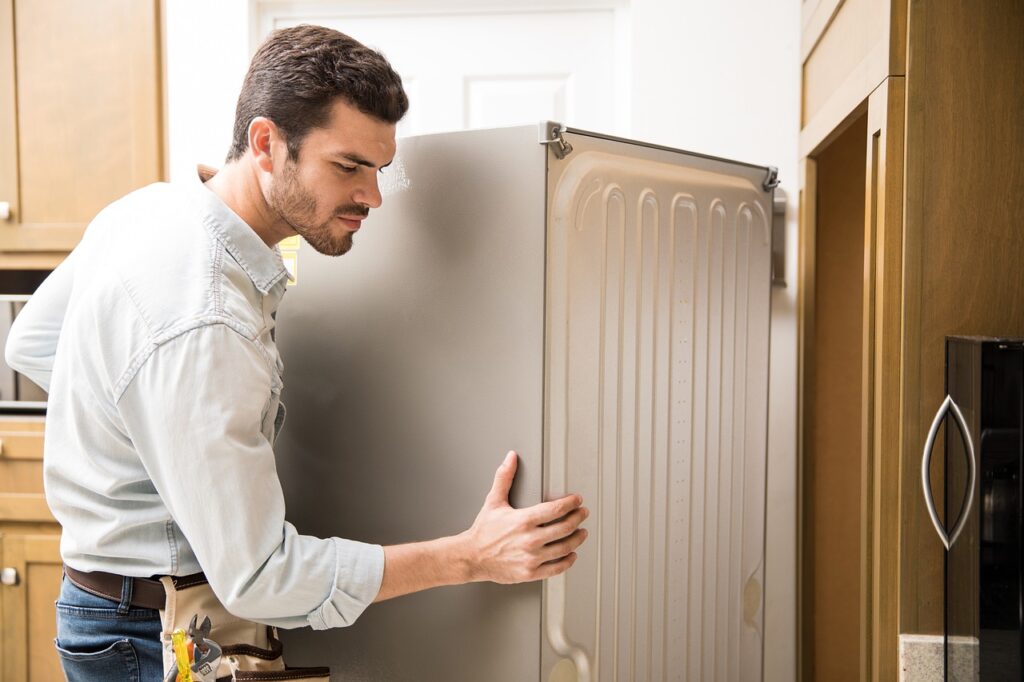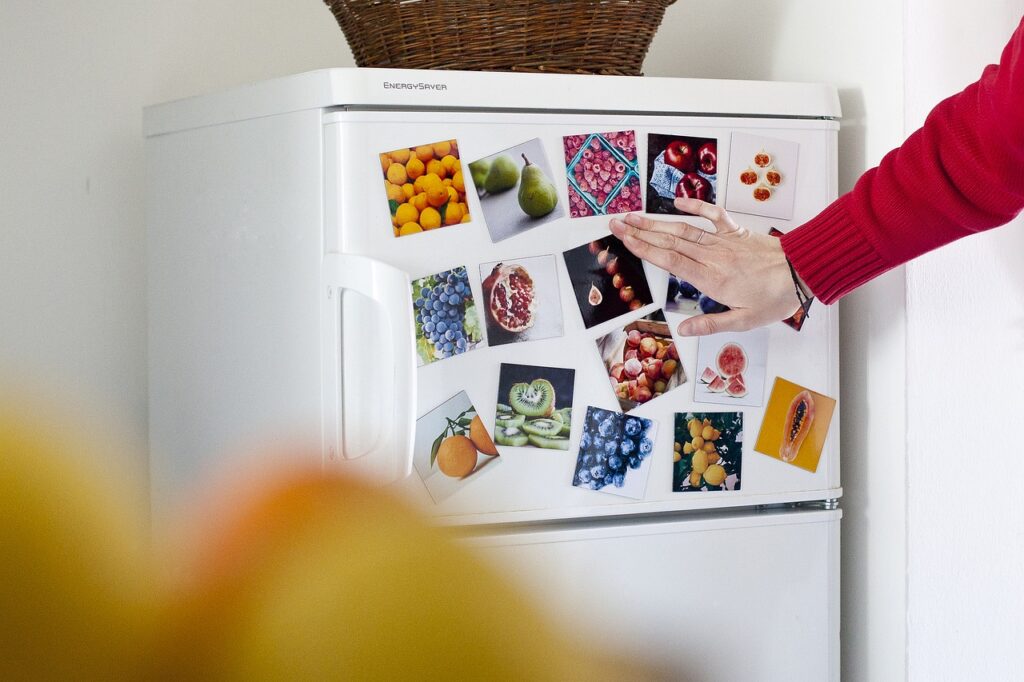Last updated on October 17th, 2023 at 10:19 pm
In the modern age of convenience, our homes are equipped with an array of electrical devices that make life easier and more comfortable. Among these, the refrigerator stands as a cornerstone of every household, preserving our food and ensuring its freshness. However, with limited wall outlets in our kitchens, it’s tempting to resort to extension cords to power these essential appliances. The question that arises: Is it a good idea to plug your fridge into an extension cord?
Let’s face it – extension cords are convenient. They offer the flexibility to position your appliances wherever you want, regardless of outlet placement. But before you hastily plug your fridge into that nearby extension cord, it’s important to consider the implications.
- Power Demand: Your refrigerator is a heavyweight when it comes to power consumption. It requires a steady and consistent flow of electricity to maintain its cooling functions. Plugging it into an extension cord could potentially result in voltage drops or fluctuations, leading to suboptimal performance and potential wear and tear.
- Safety First: Extension cords are designed for temporary use and lighter loads. They may not be equipped to handle the sustained power draw of a refrigerator. Overloading an extension cord can lead to overheating, increasing the risk of a fire hazard.
Understanding Extension Cords and Their Limitations

Extension cords are a practical solution when you need to extend the reach of an electrical outlet, but it’s important to comprehend their limitations. These cords come in varying lengths and thicknesses, designed for different levels of power consumption. When considering whether to plug your refrigerator into an extension cord, it’s crucial to take into account the appliance’s wattage and the capacity of the extension cord.
Refrigerators typically consume more power than other smaller appliances, and they often require a constant supply of electricity to maintain optimal temperatures. Using an extension cord with insufficient wattage capacity can lead to overheating, voltage drops, and potential hazards. To determine if an extension cord is suitable, always check the appliance’s power consumption in watts and match it with the extension cord’s specifications.
The Dangers of Plugging Your Fridge into an Extension Cord

While using an extension cord for your refrigerator might seem like a convenient quick fix,
it’s essential to consider the potential dangers that can arise from improper use. Some key risks include:
1. Overheating
When a refrigerator pulls more power than an extension cord is equipped to manage, it has the potential to heat up the cord to dangerous levels, creating a looming fire hazard. Did you know that the phenomenon of overheating extension cords serves as a prominent trigger for residential fires, resulting in substantial and often irreplaceable losses?
2. Voltage Drop
When we talk about voltage drops, it’s not just the refrigerator’s performance that takes a hit.
Picture this scenario: you’ve just come back from the grocery store with bags full of fresh produce and perishables. You open your fridge’s door, expecting to feel that comforting rush of cold air, but instead, you’re met with a lukewarm breeze. What happened? Well, that voltage drop we mentioned earlier could be the culprit.
Voltage fluctuations can disrupt the precise temperature control mechanisms within your refrigerator. The result? Inconsistent cooling can compromise the freshness and safety of your food. Let’s face it – nobody wants to play a game of culinary roulette with their groceries, hoping they’ll still be safe to consume.
3. Tripping Hazards: A Recipe for Disaster
We’ve all been there – navigating a maze of cords and cables snaking across the floor, trying not to trip and send a cascade of kitchen chaos flying. When it comes to extension cords, it’s not just about functionality; it’s about safety too.
A kitchen is a dynamic space, bustling with activity and movement. Adding an extension cord to the mix can create a hazardous obstacle course. One wrong step, and you could be facing not only a mess of spilled ingredients but also the potential for a painful fall.
Plugging your refrigerator into an extension cord might seem like a simple solution, but the resulting tripping hazards can lead to accidents that put a damper on your culinary escapades.
4. Long-Term Appliance Health
Think of your refrigerator as a workhorse tirelessly churning away to keep your food fresh. Now imagine subjecting it to a constant, inadequate power supply – it’s like asking a marathon runner to perform on an empty stomach. Over time, this can lead to premature wear and tear on your appliance’s vital components.
Sure, using an extension cord might provide a quick fix, but it’s a Band-Aid solution that can have long-term consequences. An overworked fridge might not last as long as one that’s receiving the proper amount of power, and suddenly you find yourself in the market for a new appliance sooner than you expected.
Ensuring Appliance Safety and Optimal Performance
To ensure the safety of your refrigerator and your household, it’s best to follow these guidelines:
- Use the Right Extension Cord: If you must use an extension cord, ensure it’s rated for the refrigerator’s power consumption. Look for cords with a thickness suitable for the appliance’s wattage.
- Limit Cord Length: Keep the extension cord as short as possible to minimize voltage drops and overheating risks. The longer the cord, the greater the resistance, which can affect the appliance’s performance.
- Regular Inspections: If you’re using an extension cord, regularly inspect it for any signs of damage, fraying, or wear. Replace damaged cords immediately.
- Consider Permanent Solutions: Ideally, it’s best to have a dedicated outlet installed near your refrigerator to eliminate the need for an extension cord altogether.
In a nutshell
While it might be tempting to plug your Fridge into an extension cord for the sake of convenience, it’s a decision that should be made with caution. Your refrigerator is a valuable and essential appliance, and its proper functioning is key to maintaining food safety and quality.
Prioritize safety by using the appropriate extension cord, or better yet, explore permanent electrical solutions to ensure your refrigerator operates optimally while safeguarding your home from potential hazards. Your family’s safety and the longevity of your appliances are well worth the extra effort.
